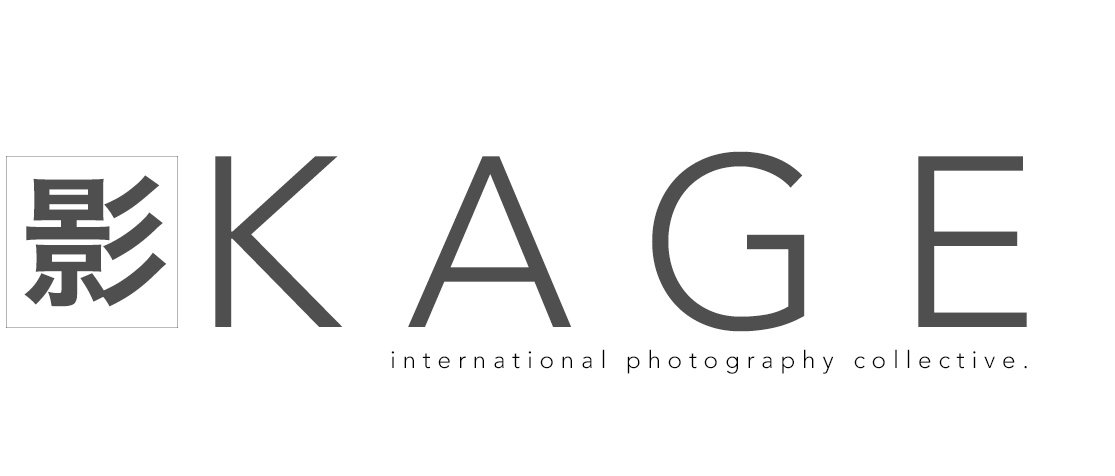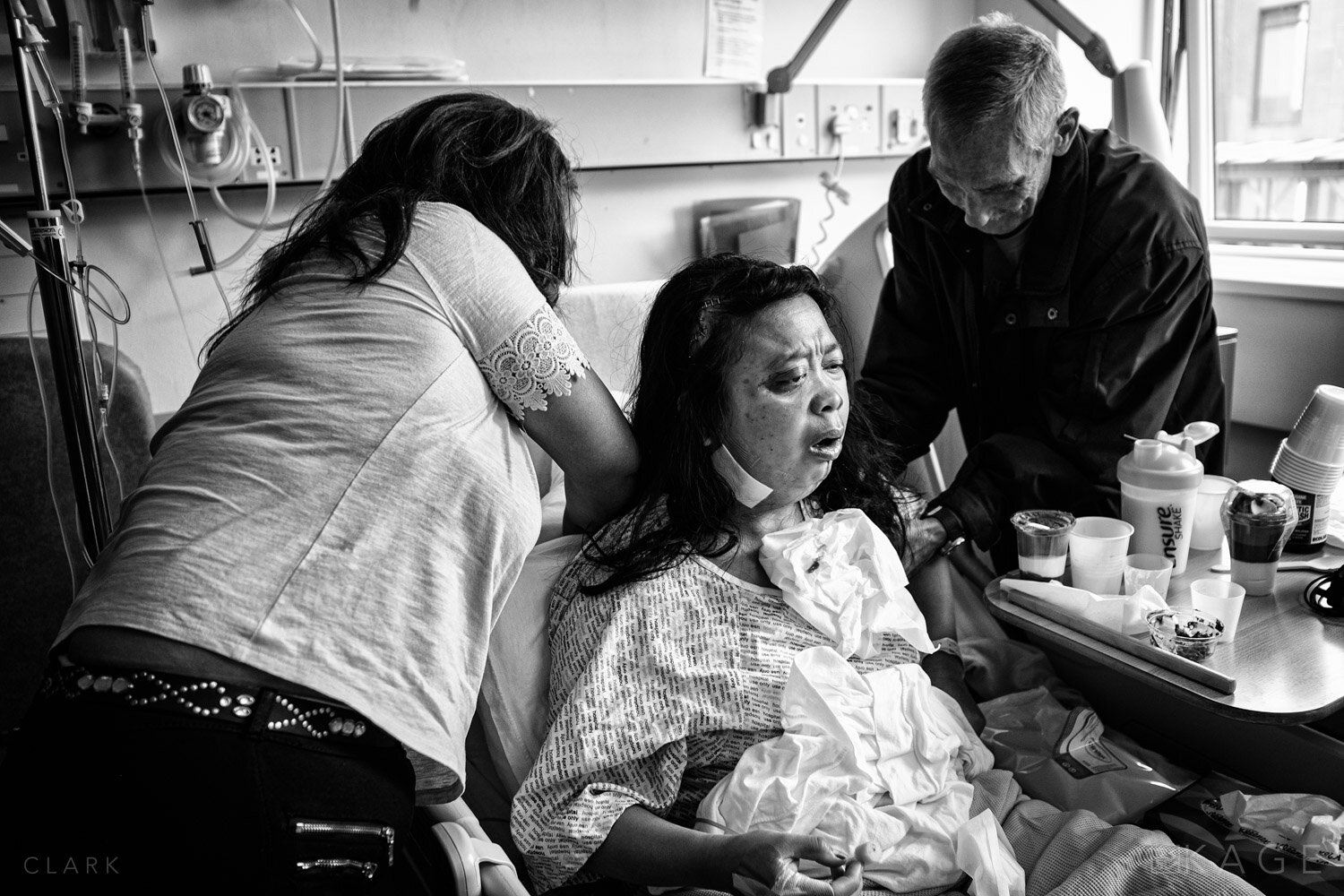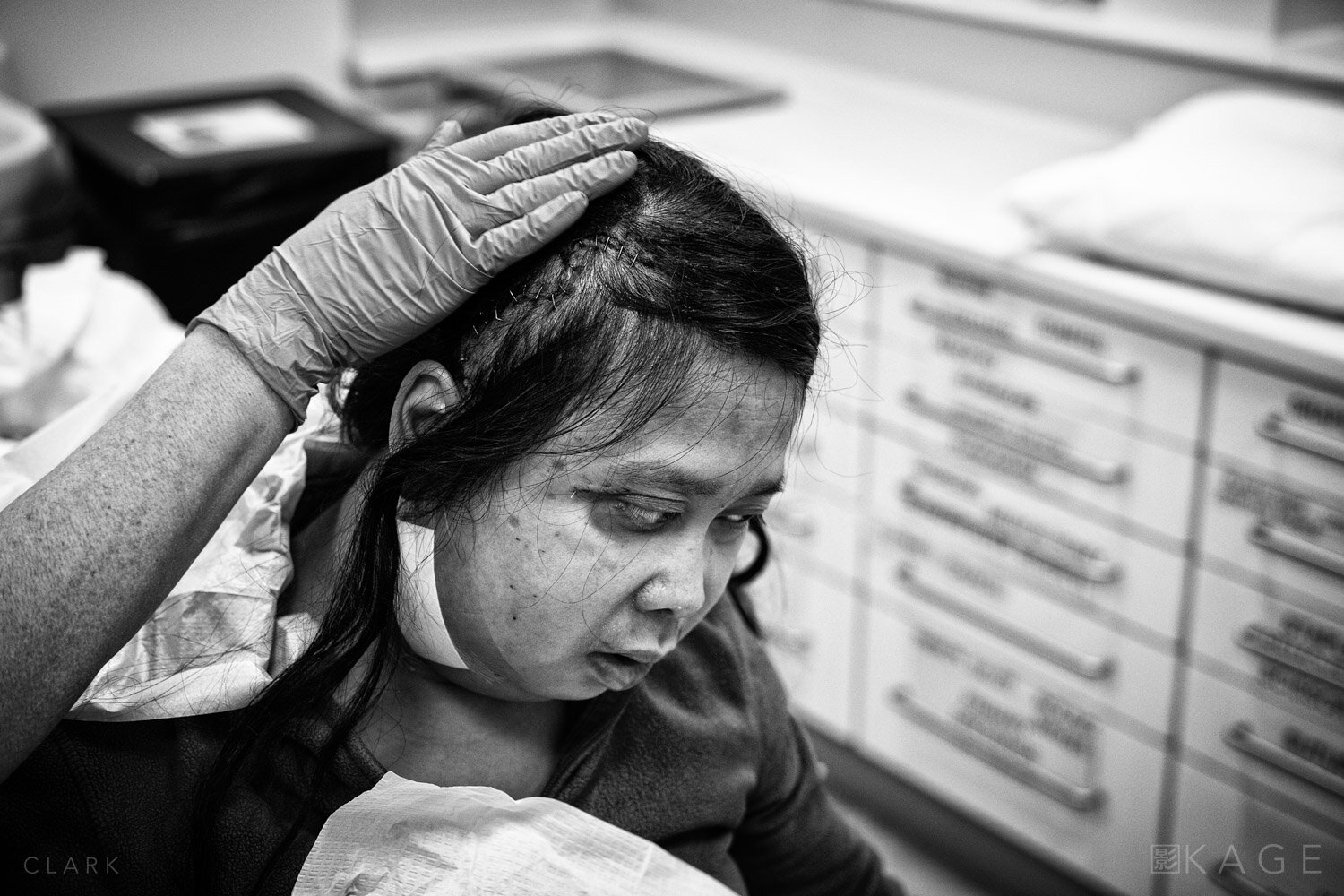PHOTOGRAPHY & TEXT BY DEREK CLARK
There is only a handful of things that defines me and most of them involve photography. I spoke about street photography in my first Definitions post last month, which is a form of documentary photography. But I also like straight-up photojournalistic stories that are plain and simple, with no frills. What you see is how it was, and all the better if it has an impact on the viewer.
Documentary photographers have to keep their eyes and ears open for opportunities to tell someone’s story. It’s very easy to miss the chance of a good story simply because you were not paying attention to the signs in front of you. Almira simply wanted a portrait taken the night before her operation. She was about to go through gruelling surgery that would be life-changing and the outcome was uncertain. This is the story of her beauty, a title I got from a conversation with Almira.
Almira’s body language shows the apprehension the night before the operation
Almira contracted German Measles when she was just a few months old in the Philippines, which led to facial disfigurement. An operation was performed many years ago that involved inserting a piece of bone into her jaw, but that bone started to grow and it began to restrict movement. Eating would become a problem unless she received an operation to fix this. She has lived in Scotland for many years with her husband Alex, and although it has taken almost 5 years, the operation was finally scheduled.
We left for the hospital the following morning at 6 am, setting off early in case of traffic but arriving so early that the nurses had not even started their shift. We waited outside the ward, mostly in silence. When the nurse finally opened the door and led Almira and Alex down the corridor to the waiting room, she explained that the ward was empty because no other surgeries were scheduled for that day. She joked with Almira about how special she was to get the full unit dedicated to her. The nurse let Almira and Alex say their goodbyes and then led her off down the corridor until they were both gone.
Queen Elizabeth II Hospital
A nurse leads Almira down a corridor toward the operating theatre
The surgery to repair Almira's jaw with titanium was scheduled to last 5 or 6 hours, but she was in theatre for a total of 13 hours. The following day we arrived at the hospital to find Almira asleep on the bed. She looked like she had been through a war, battered, bruised and swollen. She woke-up and was helped to straighten up on the bed, still drugged heavily, but possibly not heavily enough. She struggled to eat some chocolate mousse, which along with soup and ice cream, would be her only food for the foreseeable future.
Almira was discharged the following day. It was hard to believe the difference from when I had last seen her the day before propped up and looking like she had been used as a punching bag. As she entered the elevator and looked in the mirror, it was as though she was staring into the face of a long lost sister. She held on to a tub of ice cream, even though it would be melted by the time she got home.
Almira stares at her face in the elevator mirror
Almira walks up the stairs at her house
Almira shows pictures on her phone from when she was a baby - before the German Measles attack.
Almira was back at the hospital a week later to have the staples removed from her head and the stitches from her face. The surgeon had made incisions each side of her eyes and packed them so that each eye would be more level. The wound ran from almost the top of her head down the front of her ear, with a second scar on her jaw.
She had suffered a lot of pain to get this far and she was anxious about the staples being removed. The nurse gently parted her hair to reveal the scar and then proceeded to remove the staples one by one. Almira held the second nurse's hand and gripped it even more tightly each time a staple was removed, her swollen face grimacing with the discomfort. When the staples had been removed the nurse then started to snip each suture, before removing it with tweezers.
Almira anxiously waits for the staples to be removed from her head, and the sutures from her jaw and next to her eye.
When it was over, Almira looked relieved with an almost child-like expression. It was the end of this procedure. But there may be more surgery needed in the future. For now, all that was left was to heal and have the braces removed from her teeth that were fitted to hold everything together during the operation.
Almira - March 2020
Thanks to Almira for allowing the world to see her at her most vulnerable. People have to throw vanity out of the window to allow documentary photographers to tell real stories. That takes real bravery.
A special thanks to all the people that make the UK’s health service one of the best in the world. We are on the brink of the most devastating health crisis in over 100 years, and even though the NHS has been getting underfunded for the past decade, the amazing doctors, nurses and all the other staff will give everything. Sadly for some that could mean giving their lives.



























